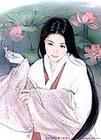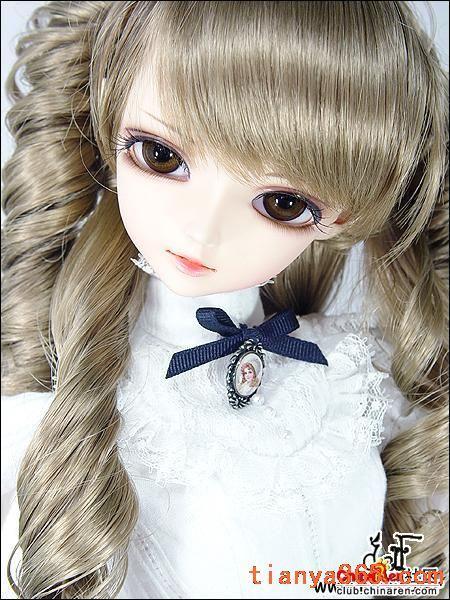| Major differences in Chinese and American education | |
|---|---|
| Jan 14, 2008 01:30 | |
 | An American headmaster at a junior high middle school says that Chinese education aims to teach student how to imitate, while American education targets to teach student how to think independently. The headmaster have paid visit to several Chinese middle school in Ningbo and Jiaxing, China’s southeastern Zhejiang Province. He pointed that Chinese students were taught to learn by rote. In contrast, American students were taught to ask more questions. That’s why Americans are more innovative than Chinese students after they grow up. The result of two different ways of educating is: Americans are good innovators /novelty-generators, whereas Chinese are good imitators. What do you think of Chinese education? |
| Jan 14, 2008 08:39 | |
 | Having worked in education in America, I can tell you that America's innovativeness is in grave danger of disappearing. Until about the mid 1960's, American education stressed the same things as China. As a result, we made enormous strides in all fields. The innovations that have been driving America have been coming from the baby boomers who grew up during both periods. First, they were forced to exercise self control and learn (yes by rote). Later, by they time they got to high school and college, American education had begun to drift away from rote learning. So, these folks were allowed to express themselves more and more. Most of them already had good work habits so they went on to become highly successful people and brought us many of the wonderful things we have today. A few, fell victim to drug abuse, laziness, etc. The generations that have come since are increasingly undereducated, unmotivated, etc. A few whose parents did not buy totally into the new way of educating are doing well and are on their way to becoming the new elite. Asking questions is a good thing, but learning a little first so you are equipped to ask intelligent questions and to understand the answers is much better. I remember during the early 60s people used to say that the Japanese were good immitators, but were not good innovators. No one says that anymore. In closing, I would say that America and China should look at each others' educational systems closely. I believe they will find that during the early years, structure and rote learning are essential so that later on, when the minds begin to mature and creativity is ready to blossom (age 17, in my opinion), the students will be ready to channel their creativity in useful directions instead of wasting it. |
| Jan 14, 2008 10:42 | |
 | What you have is a case of a Junior High School principle who is educated FAR BEYOND his intelligence and being accorded "expert" status. That "headmaster" is a fool pandering "happy horse manure." In the US, education has become a highly political game and the results of the last 40 years have been disasterous. The modern American educational system creates undisciplined minds and releases them into society. An undisciplined mind only creates chaos for its owner and society. dittos to YEMMIE |
| Jan 15, 2008 11:02 | |
 | My apologies...principle should be principal in the context above. |
| Jan 15, 2008 11:04 | |
 | Yemmie, very insightful lecture. Griz, You paint quite dark picture, but looking things from couple of thousand miles from US, and having met only few young people from there, I say I have made my picture quite alike. Carlos |
| Jan 15, 2008 19:38 | |
 | Yemmie delevered a very profound lecture. Rote learning is essential in Children's early education. One has to be a good immitator inorder to become a good innovator. The key question is that the present Chinese educational system take rote learning as an panacea in various stages of education. Crammed education hinders the growth of students' creativity. |
| Jan 16, 2008 03:50 | |
 | Chinese students do not like asking questions. They sit passively in the classroom to be fed with the boring lectures delivered by their teachers. In classroom, the teachers are always right and authoritative. No one is expected to defy the teachers. |
| Jan 16, 2008 05:32 | |
 | Yes, but you don't have to defy a teacher in order to ask an intelligent question. The key is first to ask for clarification if you don't understand something. Then, if you detect a contradiction, something that does not seem plausible, you have two choices: 1. You can challenge the teacher, but in a very respectful way. "Maybe I still am not quite understanding you about this, but if _______, then I don't understand why _________." 2. If you are confident that you are right but feel that expressing it would arouse the wrath of your teacher, you can remain quiet. You still have learned from the experience, and you can apply the knowledge you have gained in the future elsewhere. I have used both of these approaches all of my life. No class lasts forever, but the knowledge and wisdom gained can serve you well for a lifetime. |
| Jan 16, 2008 12:03 | |
 | Education is about thinking, not rote learning. You can teach a parrot to speak but it doesn't know what it is saying, Chinese education is doing just that. It is ramming facts (sic) down the students' throats but if you ask them to consider multiple facts express an opinion you risk waiting forever. Good students will restate facts they have been taught and they get marked on the number of facts they get right. This is made worse by the preponderance of multiple choice questions in exams. In China's defence, western countries were once like this. If the US can learn from the Chinese approach, then the US system is truly in a bad way. There may well be a need to return to the basics (often called the 3 R's), but there are more enlightened ways than rote learning - like getting the kids interested and enjoying it. My experience in China is private universities where the standard is lower than the government universities, so I have to accept that my comments relate to this level and presumably downwards. |
| Jan 18, 2008 10:21 | |
 | I've only taught adult students in special training classes paid for by their company. There were some really passive classes, but my teaching style was to aggressively engage the students and make them think? Here is a typical example from a protocol analysis lecture: "Why would you find thousands of frames with hundreds of of IP addresses, but only one MAC address? Why might that happen? What sort of network device might do that?" (ANSWER: network router) When I'd get a guess, I'd ask.... "Why does a router do that?" It was rare that I could not get the students involved. Perhaps the blame does not lie with China's educational system, but rather with the teachers themselves? |
| Jan 19, 2008 02:19 | |
 | I always think that everything has two sides, so does the different education systems of China and America. |
Page 1 of 7 < Previous Next > Page:
Post a Reply to: Major differences in Chinese and American education











 Copyright © 1998-2026 All rights reserved.
Copyright © 1998-2026 All rights reserved.